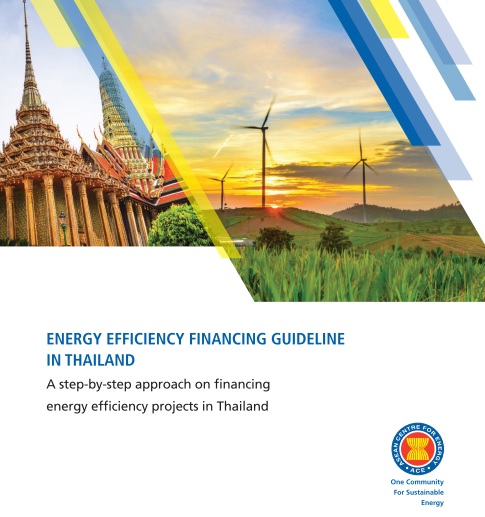Energy Efficiency Financing Guideline in Thailand

As one of the largest economies in ASEAN, Thailand is in the forefront of meeting its primary energy demand to cope with its rising population and their electric power consumption. Since early 1990s, Thailand has identified Energy Efficiency and Conservation (EE&C) as an effective strategy to meet the rising demand for energy and spearheading EE&C initiatives by generating policies, establishing dedicated fund and multiple financing mechanisms.
In 2014, they have tightened their initial 2010 and 2011 target to reduce energy intensity by 30% in 2036 with a 2010 baseline, while simultaneously continuing the joint effort with the national and international stakeholders to unlock various financing schemes.
To further support Thailand’s EE&C development, the ASEAN-German Energy Programme (AGEP) – a jointly implemented project by ASEAN Centre of Energy (ACE) and Deutsche Gesellschaft für Internationale Zusammenarbeit (GIZ) GmbH on behalf of the German Federal Ministry for Economic Cooperation and Development (BMZ) – has developed this guideline to provides a comprehensive overview of the successful EE financing schemes currently in place, including its background, eligibility criteria and application procedures.